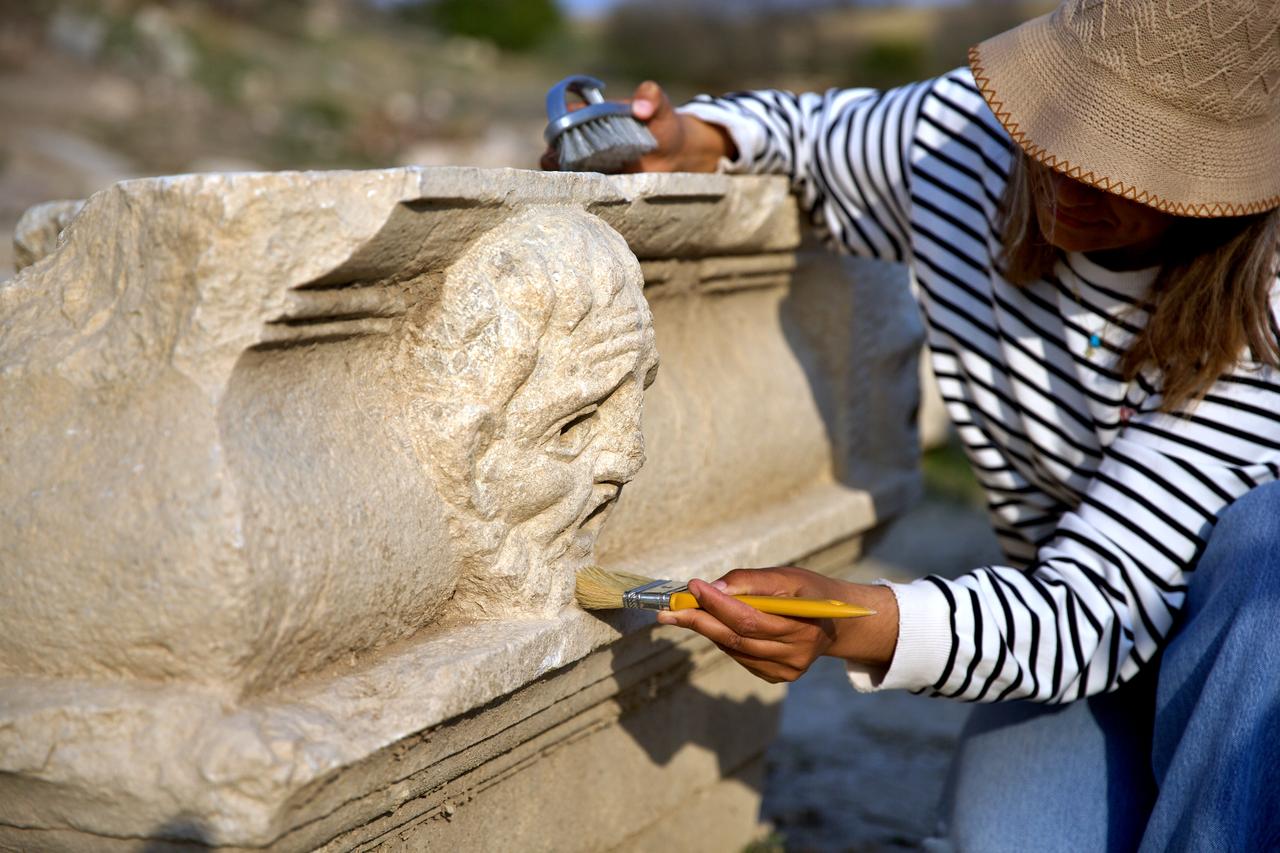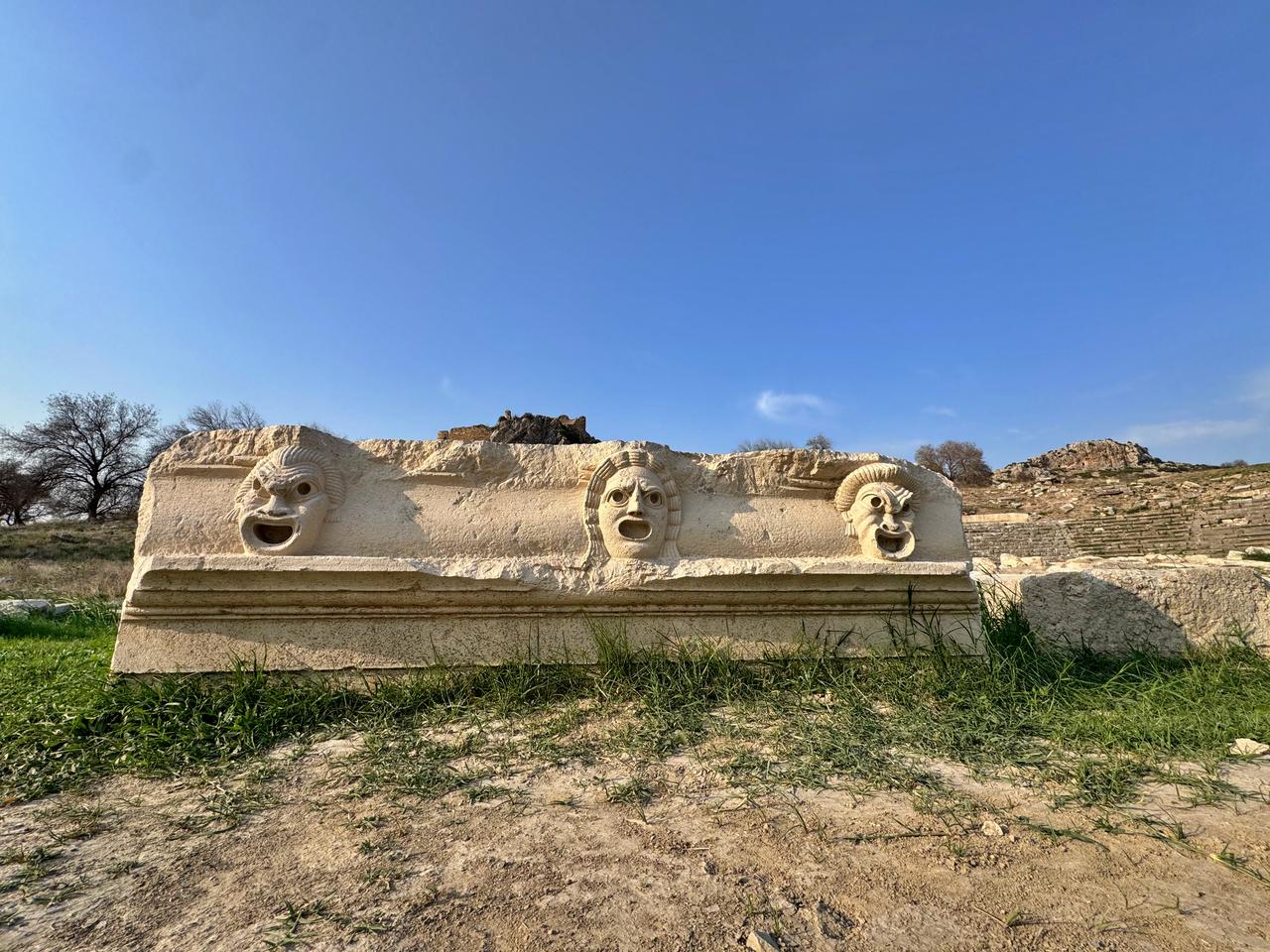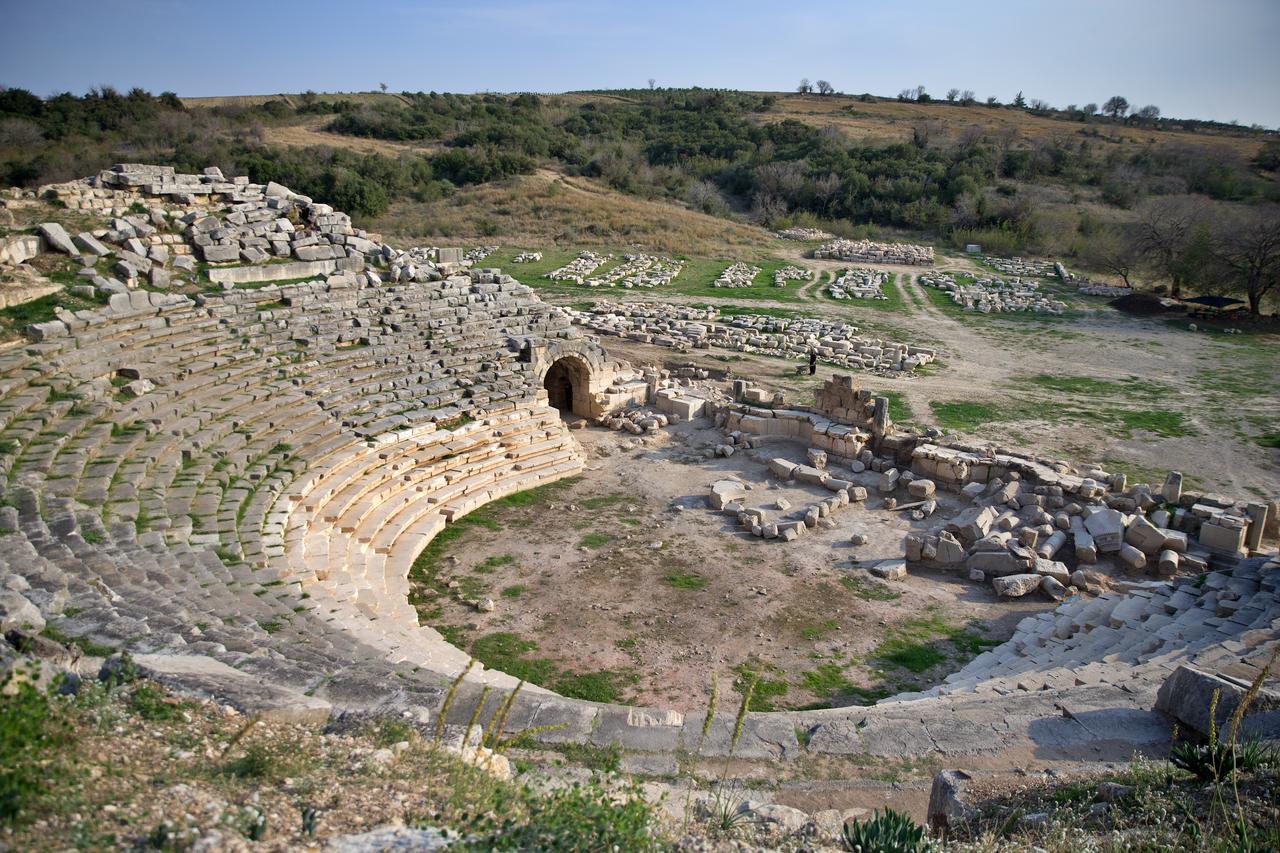
Archaeologists working in the ancient city of Kastabala in Osmaniye, southern Türkiye, have uncovered five additional theatrical mask reliefs in the site’s Roman-era theater. The discoveries bring the total number of masks found this year to 36, strengthening the view that this first-century A.D. structure served as a vibrant cultural venue in the region.
The excavations take place in a settlement dating back roughly 2,700 years and currently focus on the theater, a large public building that once seated around 5,000 people. Researchers believe it was built during the early Roman Empire, when cities across Anatolia developed major performance spaces to host plays and civic events.

The excavation team led by Faris Demir of Osmaniye Korkut Ata University says that earlier seasons also yielded mask reliefs showing figures from tragedy and comedy. The latest finds include a particularly striking example: a carved likeness of an elderly philosopher.
Demir noted that this piece stands out among the theatrical motifs. He explained that it points to the theater functioning not only as a place for staged performances but also as a broader cultural hub where philosophical and literary exchanges likely took place. The presence of such imagery suggests a community engaged with both entertainment and intellectual life.

The newly uncovered masks also reflect Kastabala’s position as a meeting point of artistic influences. Demir said the reliefs carry elements of both Eastern and Western traditions, illustrating how local craftsmanship merged with Roman stylistic features. This cultural blend mirrors the broader historical role of Anatolia as a bridge between regions.
As work continues, the team is recovering architectural components from the theater’s stage building. These pieces will help guide a future restoration effort, with researchers aiming to revive the structure and preserve it for generations to come.